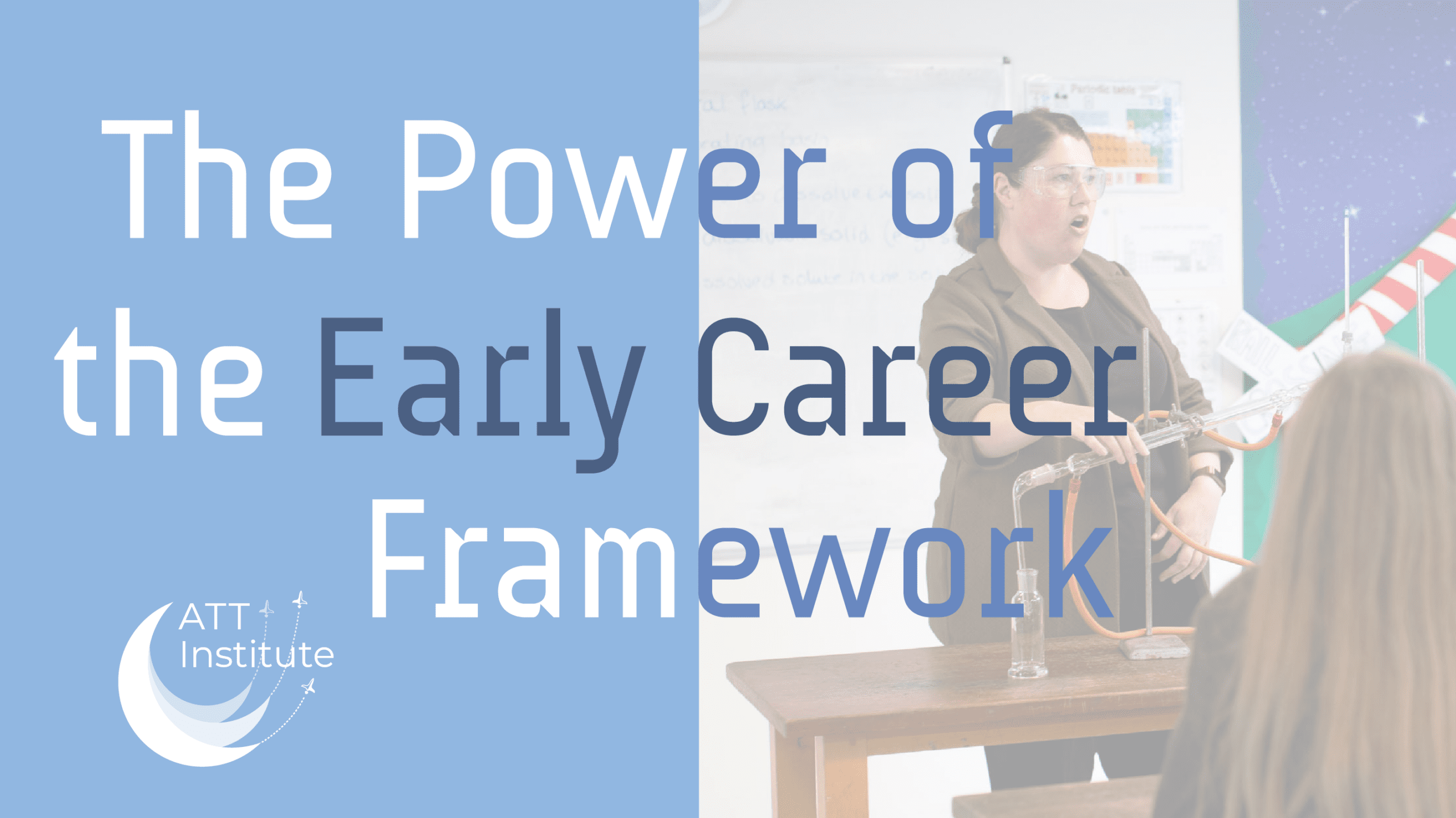

The Power of the Early Career Framework- Mentor’s Perspective
By Rob Cruxon
ECT Mentor at Sutton Community Academy.
About Me
I have been teaching for 20 years, during this time have been a mentor for early career teachers and trainee teachers, both in the school setting and for Teach First. I have worked as an Associate Assistant Head with responsibility for coaching and professional development and the Head of a Science Department. In all of these roles I have worked with teachers in the early stages of their career and supported them in their continual development.
Constantly Improving Practice
“Don’t throw that resource away, everything comes back around in teaching, we’ll be doing it again in 5 years”.
This was the perceived “wisdom” that was passed onto me by the senior teachers in the early part of my career. Since those days, as I have gained experience in the classroom, I often reflect upon the truth of this statement.
I have found that if viewed from a superficial level, it does seem that some ideas may come back into fashion after a few years. When viewed in more depth, we are a profession that is constantly innovating and building on good practice.
Nowhere is this culture of innovation more true than with the developments in the framework supporting early career teachers and the role of their mentor.
Innovating Mentoring
Throughout my career, many colleagues have welcomed me into their classrooms for me to observe good practice. In the early years I often left their rooms certain that I had seen excellence but uncertain how I could apply to my own practice. I was still growing as an expert teacher and I did not yet have sufficient understanding to be able to devise why it was good, just that what I was seeing seemed to work. This then led me to long rounds of trial and error where I copied strategies I had observed and careful self-evaluation. I was supported on this journey by many great mentors but the process of old-style mentoring was long and frustrating at times. Feedback was often unspecific and unfocussed and it was common practice to discuss every single area for improvement in each meeting. It is easy to become overwhelmed in this situation.
Through my various roles in working with early career teachers I have tried to address this problem but found it difficult at times to express clearly which areas my mentees needed to work on, how best to approach improving these areas and how to achieve rapid results.
This is where the power of Early Career Framework becomes evident. The intention is still the same and so are the outcomes. At a glance, some may see this as “what we’ve always done in a fancy package”.
“What we’ve always done in a fancy package?”
The ECF is a modern innovation on traditional good mentoring. I loved how clearly the different developmental strands were broken down and supported with training examples. Successful teaching is broken down into tiny, simple objectives and associated with clear success criteria. There was a wealth of support for me as a mentor that I have never had access to before and because of this, I felt very comfortable having developmental conversations with my mentee.
The framework allows me to apply my experience and subject expertise to give my mentee clear examples of how to apply each aspect good practice. The role of the mentor is then to model good practice in our meetings and most importantly, narrate why it is good.
In our first meeting together, I explained to my mentee why it is important we commit to deliberate practice of skills in as close to the real setting as possible, even though some may find this uncomfortable. When I was younger, a sports coach instilled in me the idea of “practicing like how you want to perform” and this is still true for education. By going through rounds of instructional coaching, deliberate practice and feedback the ECT is able to embed good practice at a rapid pace and gain insight as to why it is effective in a way that was never available to me in the early years of my career.
So, is the Early Career Framework just “what we’ve always done in a fancy package?”
No. As always in education, we have taken existing good practice and improved it.
